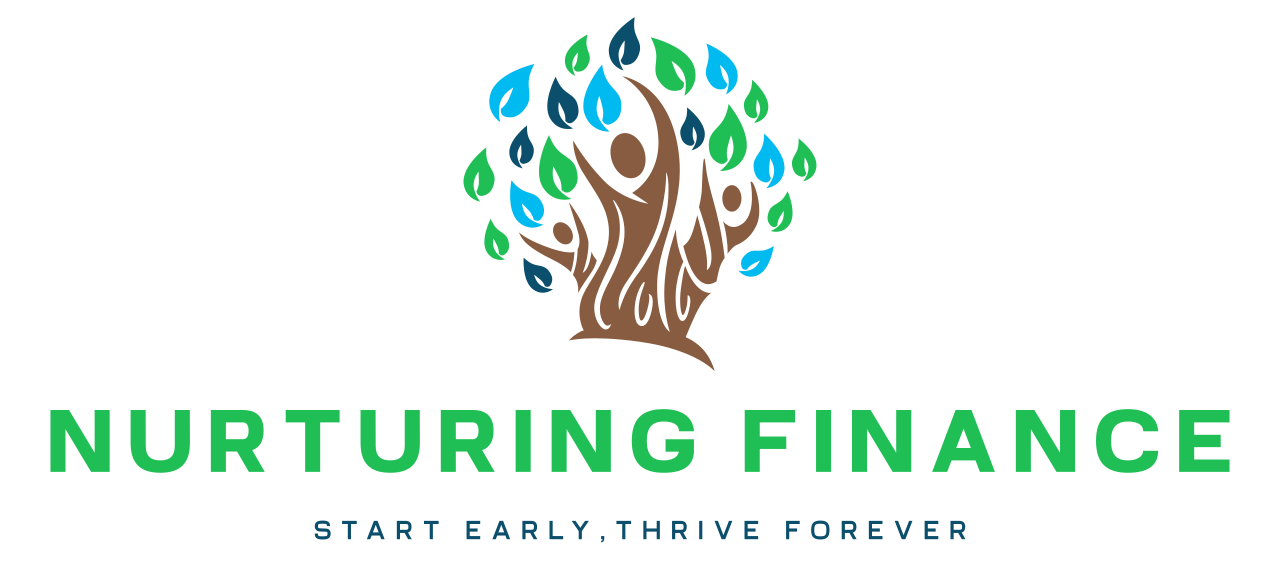“The earlier you start learning about money, the more control you’ll have over your financial future.” – Warren Buffett’s timeless wisdom echoes a truth many teens and parents are now prioritizing: financial literacy is a cornerstone of success. With 85% of U.S. high school students eager to learn more about money management, it’s clear schools are stepping up. Today, 26 states now require financial education for graduation, backed by programs like EVERFI’s, used by 750,000 teachers nationwide.
Yet, 99% of adults face financial stress without guidance—a problem preventable through early education. At its core, financial literacy isn’t just about budgeting; it’s about building confidence to navigate student loans, credit cards, and real-world decisions. That’s why this guide breaks down how mastering money basics now can transform uncertainty into empowerment. From understanding credit scores to avoiding debt traps, these skills are the roadmap to a stable financial future.
Key Takeaways
- Over 85% of teens want financial education in school, per 2024 data.
- 26 states now mandate financial education, with more following suit.
- EVERFI’s programs reach 750,000 teachers, offering flexible, grade-specific lessons.
- NEFE’s mission emphasizes lifelong financial decision-making for all ages.
- 99% of adults experience financial stress without early education—avoid this gap!
Understanding Teen Financial Literacy Basics: Why It Matters
Financial literacy is key to making smart money choices. It’s a skill that shapes our futures. Teens who understand money can handle college costs, avoid debt, and plan for the future.
Listen to the the episode Steps to Build Financial Literacy in Teenagers on Raising Financial Freedom
The Impact of Financial Literacy on College Success
Without financial literacy, teens face big challenges. Did you know 70% of college students wish they knew more about money before starting? Here are some interesting facts:
- 63% of millennials feel unprepared for financial decisions
- 44% lack basic credit knowledge
- Over half have no emergency fund
“Financial literacy is not just about money—it’s about life skills.”
Key Financial Concepts Every Teen Should Master
Learning the basics of money is crucial. Teens need to know about budgeting, saving, and interest rates. They should understand:
- Budgeting: Balancing income and expenses
- Credit management: How credit scores impact loans and interest rates
- Debt awareness: Distinguishing good vs. bad debt
- Investing basics: Long-term growth strategies
How Early Financial Education Shapes Future Decisions
Financial literacy early on helps teens avoid big mistakes. For example, 44% of teens don’t understand credit, leading to bad choices later. Early education also means less reliance on payday loans (used by 43% of low-literacy groups). Here’s how it makes a difference:
Learning these skills early helps teens deal with college costs, avoid debt, and achieve financial stability. It’s crucial to start early.
Essential Money Management Skills for Teens
Building good financial habits starts with simple steps teens can take today. Let’s look at how to create a budget, understand needs vs wants, and track spending. These skills help teens prepare for financial independence.
Creating and Sticking to a Realistic Budget
Begin by creating a budget with your net income. If you make $200 a month, subtract taxes first. The 50/20/20/10 budget splits income into:
- 50% for needs (rent, food)
- 20% for wants (entertainment)
- 20% for savings
- 10% for charity
Apps like Mint or spreadsheets help manage their money and avoid overspending.
Distinguishing Between Needs and Wants
Deciding what’s essential vs optional builds discipline. For example, a car might seem like a need, but costs like insurance and gas add up. The Junior Achievement 2019 survey found teens often confuse wants with needs. Ask: “Will this improve my life long-term?” before buying.
Setting Smart Financial Goals
Setting financial goals makes saving meaningful. Use SMART goals: specific, measurable, achievable, relevant, time-bound. For example, “Save $300 for a phone in 6 months by putting away $50 weekly.” Tracking progress keeps motivation high.
Tracking Expenses: Tools and Techniques
Track every purchase to spot spending leaks. Use free tools like:
- Bank apps for real-time balances
- Spending trackers like GoodBudget
- Handwritten journals for tactile learners
Here’s how small savings grow over time:
“Even a mental budget improves finances.” — 2024 financial research
These steps turn abstract concepts into daily actions. Start small, use tools, and watch savings grow!
Navigating Banking, Debit Cards, and Credit Scores
Starting with bank accounts is key to managing money. Many teens open checking accounts with a debit card. They need a parent’s signature if they are under 18. These accounts help track spending and build habits for responsible use. A debit card uses your own funds, unlike credit cards which borrow money. A crucial distinction 58% of teens still don’t understand financial basics like this.
Building a good credit score starts early. Even with no income, teens can become authorized users on a parent’s credit card. A credit score affects loans and future housing. Did you know the average teen’s score is 630? That’s “fair,” but improving it now boosts opportunities later.
- Debit vs. Credit: Use debit for everyday purchases, credit sparingly to build credit history.
- Track Spending: Apps like Greenlight® help monitor transactions and avoid overdraft fees.
- Understand Credit Limits: Keep balances under 30% of credit limits to protect your credit score.
“A financial professional can guide teens through choosing the right financial products and services,” says the National Endowment for Financial Education. “Avoiding financial pitfalls like credit card debt starts with education.”
Over 60% of teens admit they don’t know how credit scores work. By starting with small steps—like using a debit card responsibly and learning how credit works—teens can avoid future financial pitfalls. Remember, 30% of teens already use budgeting apps; take the next step by exploring how financial services impact long-term goals.
Smart Saving Strategies and Investment Foundations
Building strong financial habits starts with small steps. Opening a savings account is your first move toward financial security. Look for accounts with competitive rates and no monthly fees. Setting a savings goal helps track progress, whether you’re saving for a phone or college. Remember, even small deposits add up over time.
Ever heard of compound interest? This is where your money works for you. Use the Rule of 72 to see how fast your cash doubles: divide 72 by your interest rate. At 6%, your money doubles in 12 years! That’s how long-term financial growth happens. Start early—it’s the basics of investing.
Investing might sound tricky, but there are different investment options for teens. Custodial accounts let you buy stocks or mutual funds. Even $50 monthly in a stock like Apple or a bond fund can grow over time. Diversify to reduce risk, but always research first. Small steps today build wealth tomorrow.
When it comes to college, avoid student loans without a plan. Borrow only what you need, and know repayment options. The Bold Debit Card even lets you earn points redeemable toward loans. Financial literacy helps you avoid debt traps and make smart choices.
“95% of teens say personal finance classes would help them manage money.”
That’s why starting now matters. Every dollar saved or invested is a step toward financial security. Ready to grow their money? Start small and watch it multiply!
Conclusion: Building a Strong Financial Future Before College
Building a strong financial foundation starts now, not after graduation. Over 70% of teens feel unprepared for money decisions. But, the lessons here offer tools to change that.
Financial literacy education is key to their financial life. It helps avoid common pitfalls like credit card debt. Every step, from budgeting to saving, is important.
Only 17 states require personal finance courses. Yet, 75% of students wish they’d learned about credit scores earlier. Start by enhancing their financial decision-making today.
Open a savings account, track expenses with apps like BusyKid, or discuss college costs with parents. These actions build financial responsibility early.
Parents and mentors play a key role. While 85% of adults want schools to teach money management for teens, only 30% feel ready to lead these conversations. Use real-life tasks, like grocery budgeting, to practice financial skills.
The Boys & Girls Clubs’ programs show that gradual learning works. Remember, financial literacy for teens isn’t a one-time lesson; it’s a journey. Teens who start now are 2.5 times more likely to save regularly and avoid debt traps.
Every dollar saved or budget tracked today strengthens long-term financial stability. Over 50% of teens worry about their future, but proactive steps like researching scholarships or understanding interest rates reduce anxiety. Financial security begins with small choices.
Tracking spending, asking questions, and practicing money lessons daily are key. Remember, 40% of young adults face credit card debt—don’t let that be your child. Start small, let them stay curious, and let these skills grow with them. Their financial future depends on the habits they build today.
Teen Financial Literacy Basics FAQ
What is financial literacy and why is it important for teens?
Financial literacy refers to the understanding and application of various financial skills, including budgeting, saving, investing, and responsible spending. For teens, developing financial literacy is crucial as it sets the foundation for their financial future. With proper financial education, teens can make informed financial decisions that will impact their lives long after they leave home. It empowers them to navigate the complexities of personal finance, ensuring they are prepared for challenges such as student loans, credit management, and savings.
How can parents effectively teach teens about financial education?
Parents play a vital role in imparting financial education to their children. One effective method is to engage teens in real-world money management scenarios, such as budgeting for family outings or saving for a personal goal. Discussing the importance of financial literacy for teens in everyday conversations helps reinforce these lessons. Additionally, providing a hands-on approach by allowing them to manage a small allowance or set up a savings account can enhance their money management skills and teach them about financial responsibility.
What are some key financial skills every teen should learn?
Teens should focus on various financial skills that will aid their journey into adulthood. Key areas include budgeting, understanding the difference between needs and wants, managing a debit card, and the importance of maintaining a good credit score. They should also learn about saving for short-term and long-term financial goals, the basics of investing, and the implications of using credit cards. Developing these skills early can lead to financial success in the future.
What should teens know about student loans?
Teens need to understand the fundamentals of student loans before heading to college. This includes knowing the difference between federal and private loans, interest rates, and the importance of borrowing only what is necessary. It’s crucial to discuss the long-term implications of student loans on their future financial life, including how it can affect their ability to achieve other financial goals such as buying a home or saving for retirement. Helping them understand the repayment process and potential debt burden is essential for their financial security.
